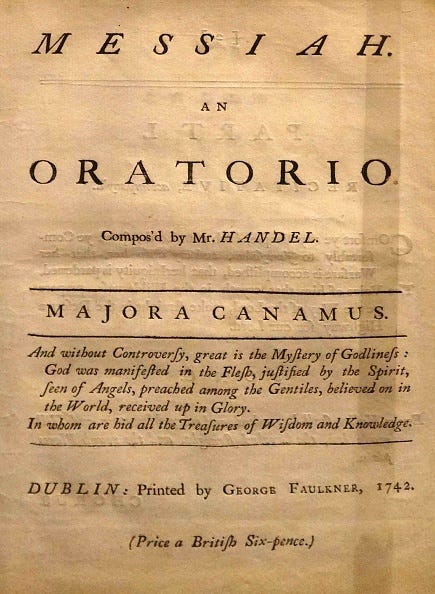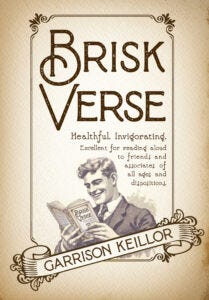The Writer's Almanac from Saturday, September 14, 2013
"Riveted" by Robyn Sarah, from A Day's Grace. © The Porcupine's Quill.
ORIGINAL TEXT AND AUDIO - 2013
On this day in 1320, Dante died from malaria, just months after completing Paradiso, the third and final part of Divine Comedy.
The Italian poet died in exile from his beloved city of Florence after supporting a failed challenge to the pope's authority. Dante had been a member of the White Party, which wanted the city to remain independent from the influence of the Vatican, but the Black Party wanted to form an alliance with the pope. Dante had tried to help work out a compromise to avoid any real conflict. He traveled to Rome to negotiate with Pope Boniface about the situation, but while he was there, the Blacks launched an uprising and took over the city of Florence. Dante was actually on his way home when he got the news that he had been banished from the city. The government announced that Dante would be buried alive if he ever set foot in Florence again.
Stripped of his wealth, Dante retreated from politics and spent the rest of his life wandering from city to city in northern and central Italy, estranged from his wife and kids and often living in poverty. His only solace during his exile was writing, and sometime around 1308, he started work on his epic poem, The Divine Comedy, and he spent the rest of his life working on it. He chose to write the poem in colloquial Italian rather than Latin, which had been the language for Western literature for more than a thousand years. At the time, Italian society was fractured and politically unstable, and Dante believed that a common literary language would help bring unity to the country. It was also the first epic poem in Western literary history in which the author served as the main character.
Dante had hoped that the success of his poem would be so great that he would be invited back to his home city, but he wasn't. Just before his death, his children visited him in Ravenna; it was the first time he had seen them since he left Florence almost 20 years before. He died a few years later on this date in 1320.
In the years after his death, the influence of Dante's work helped establish Italian as a serious literary language worldwide. His hometown of Florence came to regret having banished him and requested that his remains be transferred back for burial. But it wasn't until 2008 that the city officially rescinded his sentence of perpetual exile. Today, there is renewed interest in Dante's Florence as tourists flock to the sites of the recent Dan Brown thriller novel Inferno (2013), a reinterpretation of the Divine Comedy.
George Frideric Handel completed the Messiah oratorio on this date in 1741. Librettist Charles Jennens had finished the text in July, and he handed it off to Handel with great expectations. He wrote to a friend, "I hope [Handel] will lay out his whole Genius & Skill upon it, that the Composition may excel all his former Compositions, as the Subject excels every other Subject." Handel worked at a furious pace, doing nothing else but composing from morning to night, and completed the oratorio in only 24 days.
Messiah tells the story of Jesus' birth, death, and resurrection. It was originally written for the Easter season, and it debuted in Dublin at a charity concert the following April. The event attracted 700 people; to accommodate such a crowd, gentlemen were asked to leave their swords at home, and ladies were requested to remove the hoops from their skirts. The Dublin News-Letter reported that Messiah "far surpass[ed] anything of that Nature which has been performed in this or any other Kingdom."
It remained one of Handel's favorite works for the rest of his life, and grew to become a beloved holiday favorite — but at Christmastime, rather than Easter. Even Mozart was reluctant to change anything about the oratorio when he supervised a new arrangement in 1789. "Handel knows better than any of us what will make an effect," Mozart said. "When he chooses, he strikes like a thunderbolt."
It's the birthday of Ivan Klíma, born in Prague (1931). He wrote Waiting for Dark, Waiting for Light, Love and Garbage, and many other novels. His parents were Jewish, and as a result, he spent three years in a Nazi camp during the Second World War. He studied literature at university and went on to edit an intellectual, weekly newspaper in Prague, and eventually became a successful playwright and novelist. In 1970, his play The Castle, about a society that survives by murdering its own people, was considered too radical and was banned until 1990. He couldn't publish anything in Prague, so he was forced to take many odd jobs, including an ambulance driver, a messenger, and a land surveyor. He also published underground, or "samizdat," editions of his writing; they were made with small, bound pages of airmail paper and lie yellowed and silver-thin on his bookshelf still.
In his book The Spirit of Prague (1998), he talks about the censorship of literature and culture in Prague during communism. He says, "It was not just the intellectuals, however, or the creators who were disappointed, it was also the receivers, the audience."
It's the birthday of essayist Barbara Harrison, born Barbara Grizzuti in Brooklyn, New York (1934). She grew up with an abusive father, but when she was nine years old, she and her mother became Jehovah's Witnesses, and she spent the rest of her childhood evangelizing. When she was 19, she went to live in the giant Watchtower Bible and Tract Society headquarters in Brooklyn Heights. She gave up the faith three years later and got a job as a secretary. She started writing journalism on the side, and in 1978, more than 20 years later, she came out with Visions of Glory: A History and a Memory of Jehovah's Witnesses. In the book, she described how she struggled with her memories of the Witnesses, because they had been controlling and oppressive but also tremendously kind and courageous. She went on to write several more books of essays before her death in 2002, including Off Center (1980) and The Astonishing World (1992).
Be well, do good work, and keep in touch.®
BRISK VERSE by Garrison Keillor
“Healthful. Invigorating. Good for reading aloud to friends and associates, neighbors, colleagues bartenders, passersby, even strangers in libraries or on airplanes … to ameliorate dyspepsia and digestive inclinations.”






Thank you.